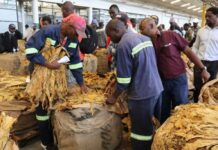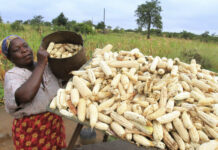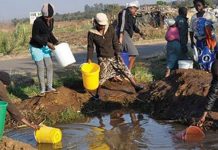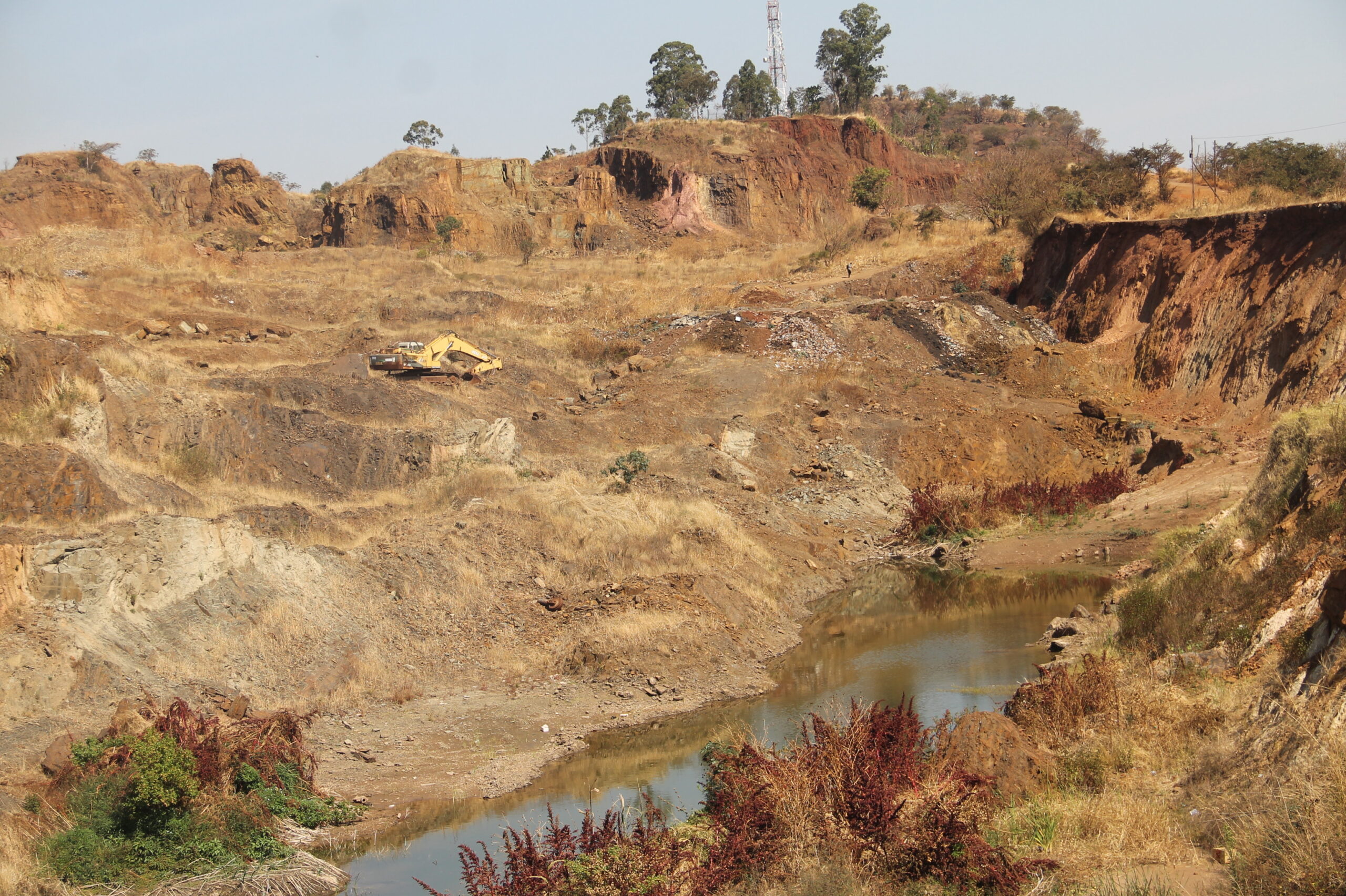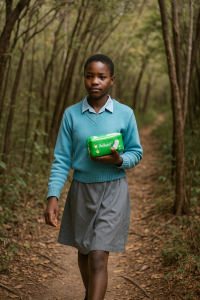
By Talkmore Gandiwa
Nestled deep within the rural expanse of Chegutu District, surrounded by thickets of wild bush and a patchwork of dry fields, lies Dombwe Village. The village, a seemingly quiet stretch of dotted homesteads and footpaths etched into the earth by bare feet, is as beautiful as it is burdened. Once a thriving agricultural community, Dombwe has become a symbol of resilience and struggle in the face of compounding hardships.
For generations, villagers relied on farming—planting maize, groundnuts, and pumpkins as both a food source and a livelihood. But over the past decade, erratic rainfall and prolonged droughts linked to climate change have withered crops and hopes alike. The ground, once rich and generous, now cracks beneath the weight of a sun that scorches rather than nurtures. The people of Dombwe have been forced to adapt, and some of those adaptations have led to a downward spiral of vulnerability.
This reality is reflected in the life of Emily, a soft-spoken 15-year-old girl whose story offers a glimpse into the quiet perseverance that defines many in Dombwe. As dawn breaks, Emily strikes a match and lights a kerosene lamp. The gentle crackle of firewood and the faint aroma of smouldering logs fill the one-roomed hut she shares with her mother and sister. Outside, birds begin their morning songs, their melodies echoing through the forest that lines the edge of the village.
“I wake up around four to help my mother with chores,” she says, stirring a pot of porridge as the firelight dances on her cheeks. “Then I walk to school with the other girls. We leave early—it’s not safe to go alone.”
Emily’s journey to Dombwe Secondary is no small feat. It’s an 8-kilometre trek through dense forest paths where stories of assault and disappearance have become whispered warnings among schoolgirls. But Emily walks it anyway. Education, to her, is not just a right; it is a lifeline.
Her teacher, Sandra Muzaradope, remembers the day Emily was enrolled.
“She had just moved from Bulawayo to live with her sick mother,” Muzaradope says. “She was withdrawn, didn’t talk much, and always seemed tired. She missed school frequently, never submitted homework, and stayed apart from other pupils.”
Concerned, Muzaradope recommended her for the DREAMS a Tsungirirai Welfare Organisation program, in collaboration with the National AIDS Council (NAC)—an initiative aimed at empowering vulnerable girls with education, health services, and psychosocial support.
DREAMS Modified Program was a turning point for Emily taking her away from Dombwe troubles where young women of her age are often left as the sole caregivers, resorting to vending, housework in distant towns, and, in more distressing cases, commercial sex work. The latter has grown into a hidden industry in the village, one that tragically now ensnares adolescent girls, luring them from schoolyards into a life of exploitation. On the other hand young men have turned to artisanal gold mining in neighboring districts, risking their lives in unsafe and illegal pits.
“When I first came to this school,” Emily recalls, “I didn’t have books or a uniform. I borrowed torn pieces of paper from classmates just to write something. Some teachers thought I was lazy, but really, I just couldn’t afford anything.”
Her mother Eline Nyamoyo, who is bedridden from chronic illness, explains through tears, “After her father left us, I raised the children alone. I had no money for school fees or supplies. During her menstruation, I’d ask her to stay home. I couldn’t afford sanitary pads, and she’d use old clothes. It was humiliating for both of us.”
The stigma of menstruation, paired with a lack of hygiene products, kept Emily out of class for several days each month. The absence added up. It widened the gulf between her and her dreams.
“It was heartbreaking for me, as a mother, to watch my daughter miss school simply because I couldn’t afford to buy her stationery or pay her tuition—things that other parents manage to provide for their children,” said Emily’s mother, her voice heavy with emotion.
“Emily is the youngest of four children. A few years after her birth, her parents divorced. Her father moved away, remarried, and distanced himself from his responsibilities, leaving her mother to raise the children alone.
“Since the divorce, getting any kind of support from their father has been nearly impossible. He doesn’t respond when we ask for help with school fees or even basic items like exercise books,” she explained.
With tears streaming down her face, Emily’s mother shared a painful reality. “During her period, I would tell her to stay home. I had no money for sanitary wear. Watching her dry her blood-stained clothes in secret broke me, but I was helpless. I’m unwell and depend on the kindness of neighbours for survival.”
Emily herself added, “Before the DREAMS program, I skipped school often. I had no sanitary pads, no stationery, and no way to pay my school fees. Whenever I asked my father for help, he would always say he didn’t have the money.”
She paused, then continued with a hopeful tone, “But now, because of DREAMS, I’m able to attend school consistently. They provide me with sanitary wear, books, and even pay my fees. For the first time, I feel like I truly belong in the classroom.”
Muzaradope notes the transformation post-intervention. “Now Emily attends regularly. Her marks are improving. She laughs more, plays with friends, and participates in class.”
Through DREAMS, Emily received books, uniforms, sanitary wear, and paid school fees. More importantly, she received dignity.
“I’m no longer ashamed,” Emily says. “I want to finish school. I want to become a nurse. I want to help people like my mother.”
Nyamoyo echoes this hope. “I thank Tsungirirai and the teachers. They gave my daughter a future. Now she reads even when she’s tired. We know her education is our way out.”
The headmaster of Dombwe Secondary Anorld Njeru said change is happening—but slowly. “We used to have many dropouts—children going to mines or getting married at 14. Now, with help from DREAMS and awareness campaigns, things are shifting. We are talking to parents, reminding them that school is a protection.”
Still, the battle is far from over. The village needs consistent intervention—economic empowerment for parents, menstrual health support, better school infrastructure, and continued psychosocial support.
“Girls like Emily are everywhere in Dombwe,” Muzaradope says. “Bright, determined, but trapped by poverty. We can’t let them fall through the cracks.”
As the sun sets over the hills of Chegutu, casting a golden hue across the parched fields, Emily returns home. Her bookbag—once empty—is now full. Her steps, once weary, now carry purpose.
In the heart of a village overwhelmed by silence, hunger, and illness, her voice grows stronger. Through programs like DREAMS, girls like Emily are finding their footing. They are reclaiming their right to learn, to dream, and to choose a different path.
But Dombwe’s story is far from over. It is a story of resilience shaped by adversity. It is a community wrestling with poverty, climate change, and the slow churn of systemic inequality. Yet within that struggle are seeds of hope—planted by compassion, watered by education, and growing toward a future where every child can stand tall.
Emily is just one flower in that field. There are many more waiting to bloom.






